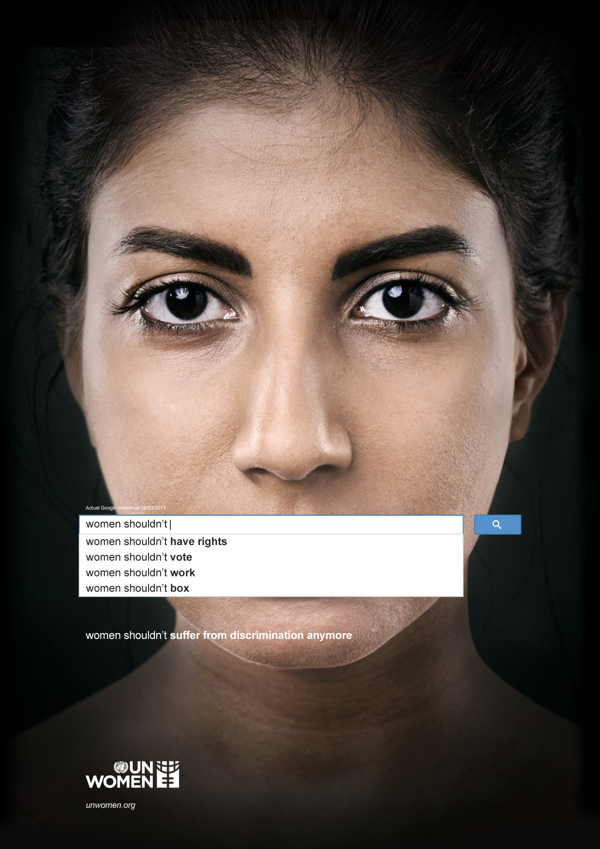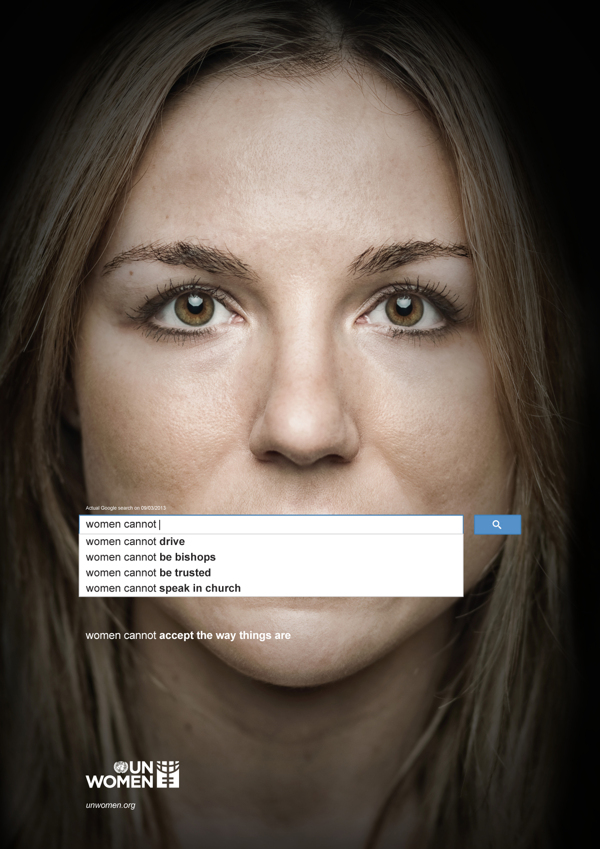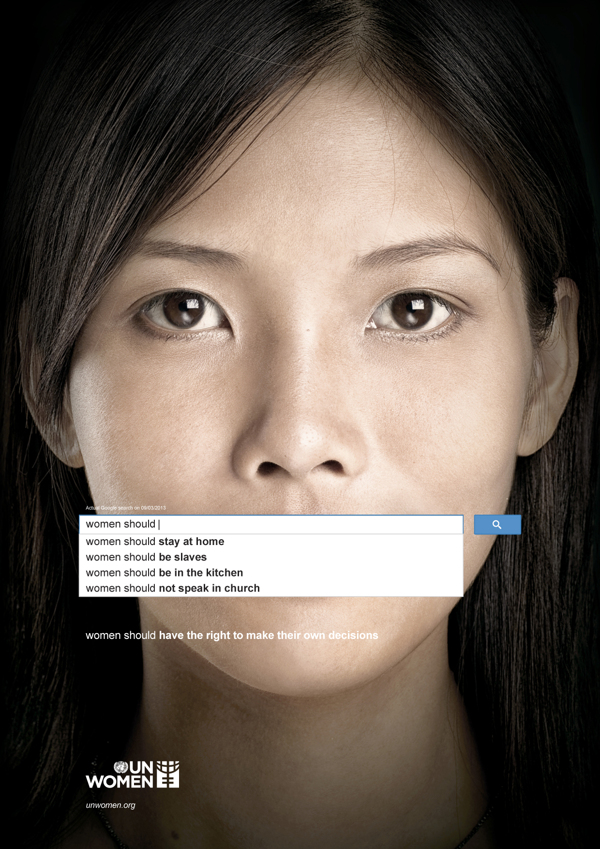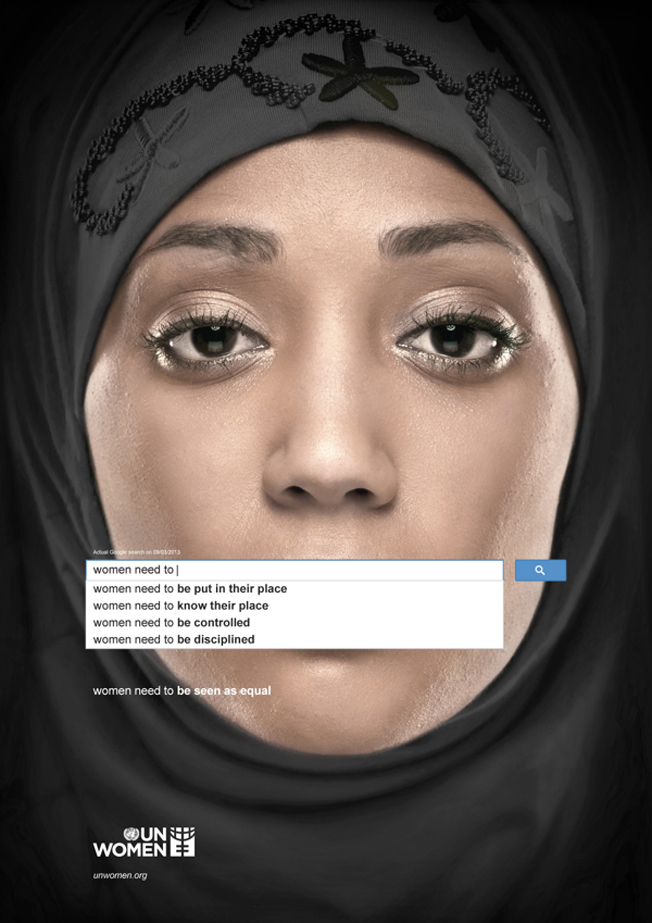Powerful Ads Show The 'Hidden' Sexism In Google Autocomplete
This campaign uses the world's most popular search engine (Google) to show how gender inequality is a worldwide problem. The adverts show the results of genuine searches, highlighting popular opinions across the world wide web.
UN Women ad shows the world’s popular opinions of women using Google's autocomplete feature
Gender inequality exists in many parts of the world—women are still being denied proper work, wages, education and healthcare in some places.
designtaxi.comGoogle autocomplete is a feature that suggests what your search term might be, based on its most frequent searches and the content of web pages. It is, in many ways, a neutral reflection of society
UN Women teamed up with Christopher Hunt of Ogilvy & Mather to come up with a series of thought-provoking ads that highlight authoritative attitudes towards women.
The ads show the real Google search results of search terms like “women need to”, “women should” and “women cannot”, revealing the abhorrent opinions that people around the world have about women.
The words “women shouldn’t suffer from discrimination anymore” and “women cannot accept the way things are” appear in tiny, white print that are barely legible, showing how these opinions are largely ignored.
And in case you're wondering, the autocomplete results for "men should" and "men can't" are fairly prescriptive — "men should pray" — but not nearly as stereotyping. Except for "men can't be feminists" — which, we hope, is just as wrong as the results above.
These ads do a stellar job driving home the daunting fact that so many people around the world share these vile opinions, so much so that Google has come to expect them.
To our readers around the world: Do you get different autocomplete results in your country? Let us know in the chat section.
designtaxi.com


